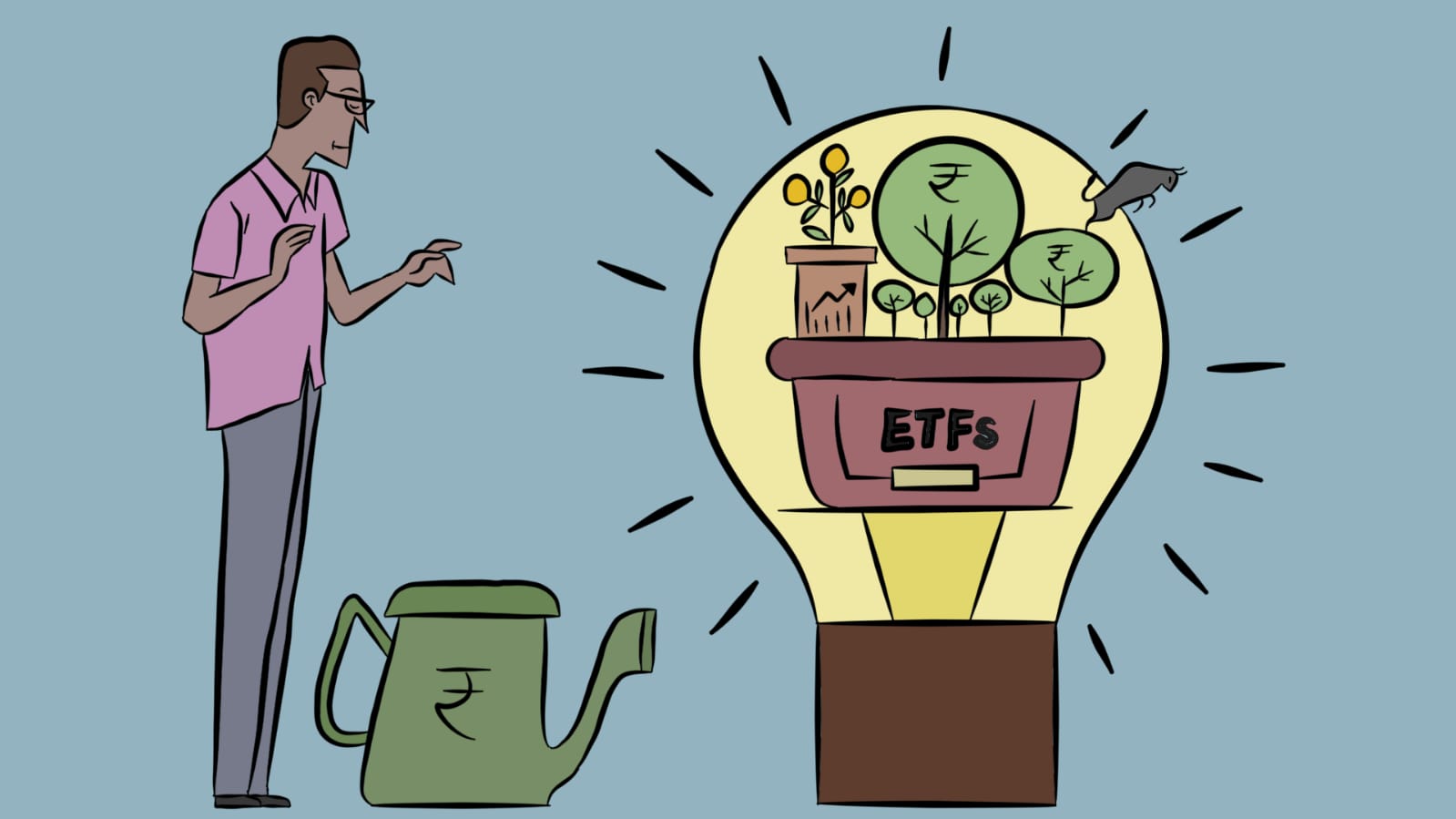
In a developing country like ours, the concept of ETFs (Exchange Traded Funds) is quite underrated. ETFs are nothing but a member of the investment family itself. ETFs are funds that own many investments on behalf of a group of investors. It is a diversified form of funds, where it holds onto multiple underlying assets, unlike a stock that holds only one. An ETF is an ‘index fund’ that is listed and traded in the exchanges like stocks and they invest in a bag of stocks, commodities and bonds, which replicate the index like BSE SENSEX, NIFTY or other such indices.
ETFs aren’t limited to these. Various kinds of ETFs serve the investors to make boundaries or partly offset the risk on an investor's tray and help in speculation and price differences.
Here are the few types -
- Commodity ETF: Here, you can trade in commodities like oil, gold or any such items, and track their price difference.
- Real Estate ETF: If you are investing in real estate, then it is the best way to do so. It is best suited when short-term interest rates and inflation are near historic lows.
- Currency ETF: Trading through a currency ETF means investing in foreign currencies that have high economic value like the euro or US dollar.
- Bonds ETF: Bond ETFs are fixed-income ETFs that are traded on stock exchanges with the transparency of old and new prices. Bond ETFs pay out interests through monthly dividends and are available on a global basis.
- Equity ETF: Buying equity ETFs would profitably diversify your portfolio. It involves a much lower risk, compared to the buying of single shares.
- Inverse ETF: Inverse ETFs function in a different manner. It involves selling stocks when you expect a price decline and then repurchasing them at a lower price. It attempts to gain from stock declines by shorting stocks. An inverse ETF is also called a 'short ETF'.
Buying and selling ETFs is incredibly easy since they are listed on various exchanges. This means you can purchase an ETF the same way you would purchase a share, through your broker. You also sell your ETF the same way you would sell a share, through your broker again!
After talking about the types and the process it's important to know and weigh the pros and cons of your investment. After all, the more you learn, the more you earn, as Warren Buffett aptly put it.
Benefits
The one key benefit you could get by investing in ETFs would be its high liquidity rate. And as it has always been said: the higher the risk, the lower the liquidity. ETFs have low risk, compared to the other investment options. Due to this huge bracket of stocks, it gives one access to various stocks, across different industries, whereas at the same time, single-industry focus limits ETFs’ diversification. Investing in ETFs would also cut your side costs of the broker's commission since there are only a few trades done by an investor.
Disadvantages
Your ETF may not turn into a multi-bagger. ETFs simply duplicate benchmark indices which means there’s absolutely no chance that you ‘beat the market’. You will make or lose as much as the market (in this case, the indices are the market) did. There is also the issue of low liquidity ETFs and their tracking errors. Low liquidity ETFs would make it very difficult to exit at the right price and could be detrimental to your investment. It is also advisable to check the tracking error of an ETF. The tracking error basically shows the error between the ETF and the index that it tracks in terms of their growth percentages.
In the developed markets, trading of ETFs is highly popular amongst investors. In India, awareness about ETFs is quite low. In the last 5 years in the mutual fund industry, AUM (Assets Under Management) in ETFs have grown at a CAGR of more than 100%, thereby giving high returns for new investors. Thus, ETFs offer beneficial investment options for passive investors, who intend to get past the inflation and secure high returns opting for a long-term investment.
